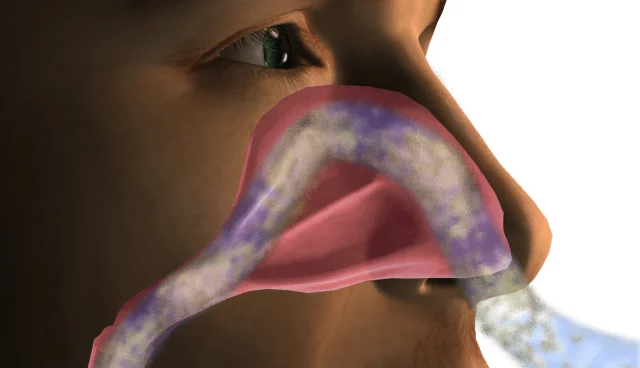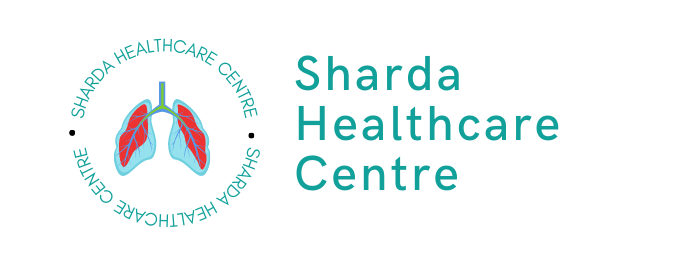
Nasal Allergies: A Comprehensive Guide
Nasal allergies, also known as allergic rhinitis or hay fever, are a common health issue that affects millions of people worldwide. These allergies can significantly impact one’s quality of life by causing a variety of bothersome symptoms such as sneezing, congestion, and itchy, runny nose. In this comprehensive guide, we will delve into the world of nasal allergies, exploring their causes, symptoms, diagnosis, and most importantly, effective management strategies.
What Are Nasal Allergies?
Nasal allergies are allergic reactions that occur when your immune system identifies a typically harmless substance as a threat and triggers an immune response. The immune system’s overreaction to these allergens results in the release of chemicals such as histamines, which cause the hallmark symptoms of nasal allergies.
Types of Nasal Allergies
- Seasonal Allergic Rhinitis: This type of nasal allergy is triggered by specific seasonal allergens, typically pollen from trees, grasses, and weeds. It is commonly known as “hay fever” and tends to occur during spring and fall.
- Perennial Allergic Rhinitis: Unlike seasonal allergies, perennial allergic rhinitis persists throughout the year and is often caused by indoor allergens like dust mites, pet dander, mold, and cockroach droppings.
Common Allergens
Several allergens can trigger nasal allergies, including:
- Pollen: From trees, grasses, and weeds.
- Dust mites: Tiny creatures that thrive in bedding, upholstery, and carpets.
- Pet dander: Proteins found in a pet’s skin cells, saliva, and urine.
- Mold: Found both indoors and outdoors, especially in damp environments.
- Cockroach droppings: A common indoor allergen in certain areas.
- Airborne irritants: Smoke, strong odors, and pollution can exacerbate nasal allergy symptoms.
Symptoms of Nasal Allergies
Recognizing the symptoms of nasal allergies is crucial for proper diagnosis and management. Common symptoms include:
- Sneezing: Frequent and uncontrollable sneezing is often an early sign of nasal allergies.
- Runny Nose: Excessive production of clear, watery mucus is a classic symptom.
- Congestion: Swelling and inflammation of the nasal passages lead to a stuffy or blocked nose.
- Itchy Nose, Throat, and Eyes: Irritation and itching are often reported by individuals with nasal allergies.
- Watery Eyes: Allergic conjunctivitis can cause redness, itching, and excessive tearing of the eyes.
- Postnasal Drip: Mucus drips down the throat, leading to coughing and a sore throat.
- Fatigue: Persistent nasal allergy symptoms can lead to sleep disturbances and fatigue.
- Headache: Sinus congestion can result in headaches, particularly around the forehead and eyes.
Diagnosis of Nasal Allergies
If you suspect you have nasal allergies, it’s essential to seek a proper diagnosis. Diagnosis typically involves:
- Medical History: Your healthcare provider will ask about your symptoms, their duration, and any potential triggers.
- Physical Examination: A physical examination of your nose, throat, and eyes can provide valuable clues.
- Allergy Testing: To identify specific allergens responsible for your symptoms, allergy tests may be performed. These tests can include skin prick tests or blood tests.
- Imaging: In some cases, imaging studies like sinus X-rays or CT scans may be necessary to evaluate the extent of sinus involvement.
Managing Nasal Allergies
Managing nasal allergies effectively involves a combination of prevention, symptom relief, and lifestyle modifications. Here are some strategies to consider:
Allergen Avoidance
- Pollen: Monitor pollen counts and stay indoors on high pollen days. Utilise HEPA filters in your home’s air purifiers.
- Dust Mites: Encase pillows and mattresses in allergen-proof covers, wash bedding regularly in hot water, and keep humidity levels low.
- Pet Allergens: If you have pets, consider allergy-friendly breeds, and designate pet-free zones in your home. Frequent cleaning and grooming can help reduce allergen exposure.
- Mold: Fix any leaks or water damage promptly, use dehumidifiers, and ensure proper ventilation in your home.
- Cockroach Allergens: Maintain a clean and pest-free environment, sealing cracks and crevices where cockroaches might enter.
Medications
- Antihistamines: These medications, which are available over-the-counter (OTC) or by prescription, can aid with runny nose, itching, and sneezing.
- Decongestants: These can provide short-term relief from nasal congestion but should be used sparingly to avoid rebound congestion.
- Nasal Corticosteroids: These prescription medications reduce inflammation in the nasal passages and are highly effective for managing nasal allergy symptoms.
- Leukotriene Modifiers: These medications may be prescribed for people with allergic rhinitis and asthma.
- Allergy Shots (Immunotherapy): For severe or persistent allergies, allergy shots can be an effective long-term treatment option.
Lifestyle Modifications
- Nasal Irrigation: Using a saline nasal rinse can help clear allergens from the nasal passages and reduce congestion.
- Avoid Smoke and Strong Odors: Steer clear of tobacco smoke and other strong irritants that can worsen nasal allergy symptoms.
- Keep Windows Closed: To stop allergens from entering your house during high pollen seasons, keep your windows closed.
- Change Clothes and Shower: After spending time outdoors, change your clothes and shower to remove pollen and other allergens from your skin and hair.
Immunotherapy
Allergy shots (immunotherapy) involve receiving regular injections of allergen extracts to build tolerance to specific allergens over time. This can be a highly effective treatment for people with severe allergies or those who do not respond well to medications. It can provide long-lasting relief and reduce the need for other allergy medications.
Alternative Therapies
Some individuals explore alternative therapies like acupuncture, herbal remedies, or homeopathy to manage nasal allergies. While these approaches may provide relief for some, their effectiveness varies, and it’s essential to consult with a healthcare professional before pursuing any alternative treatments.
When to See a Doctor
If you suspect you have nasal allergies or experience persistent or severe symptoms, it’s crucial to seek medical advice. Additionally, you should consult a healthcare provider if:
- Over-the-counter medications are ineffective or cause unwanted side effects.
- You have other underlying health conditions, such as asthma, that may worsen with nasal allergies.
- You suspect sinusitis or a secondary infection.
- Nasal allergy symptoms significantly impact your daily life and sleep.

Conclusion:
Nasal allergies can be a source of discomfort and frustration for many individuals. However, with the right knowledge and management strategies, you can effectively control and alleviate your symptoms. Whether through allergen avoidance, medications, immunotherapy, or lifestyle modifications, there are numerous ways to regain control of your life and enjoy the beauty of each season without the misery of nasal allergies. If you suspect you have nasal allergies, don’t hesitate to seek help from a healthcare provider who can provide personalized guidance and treatment options tailored to your specific needs.
